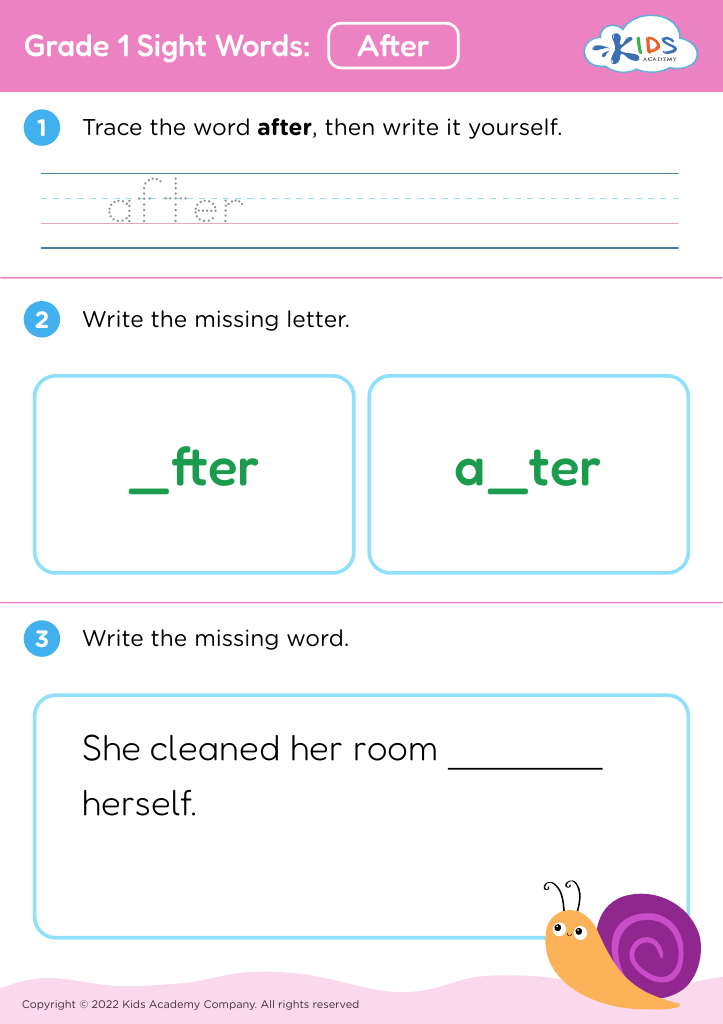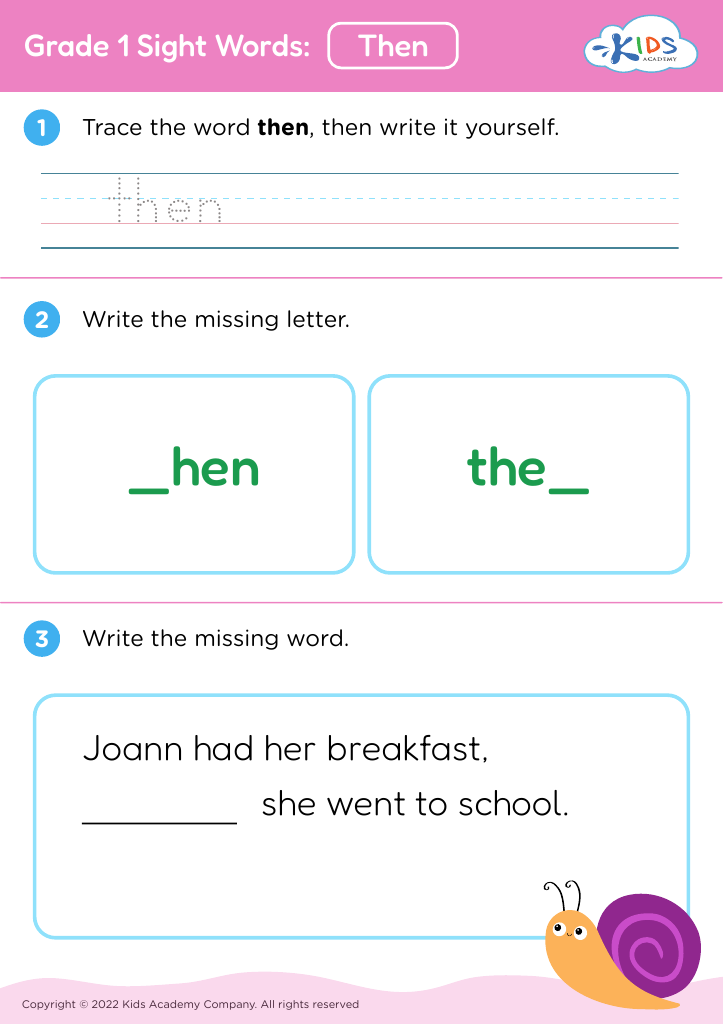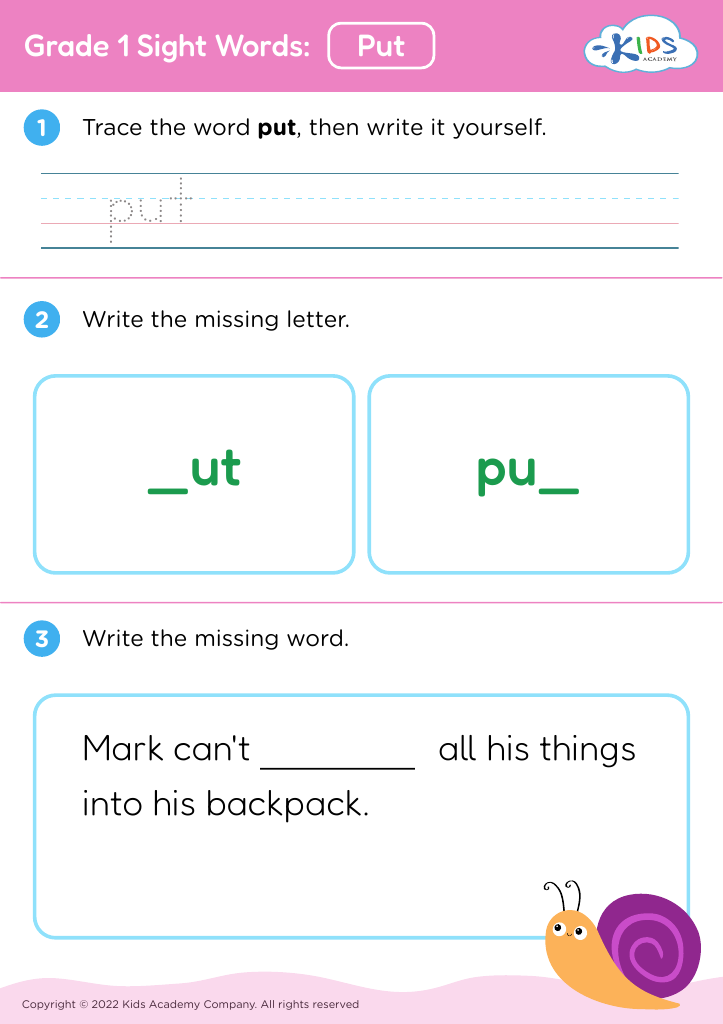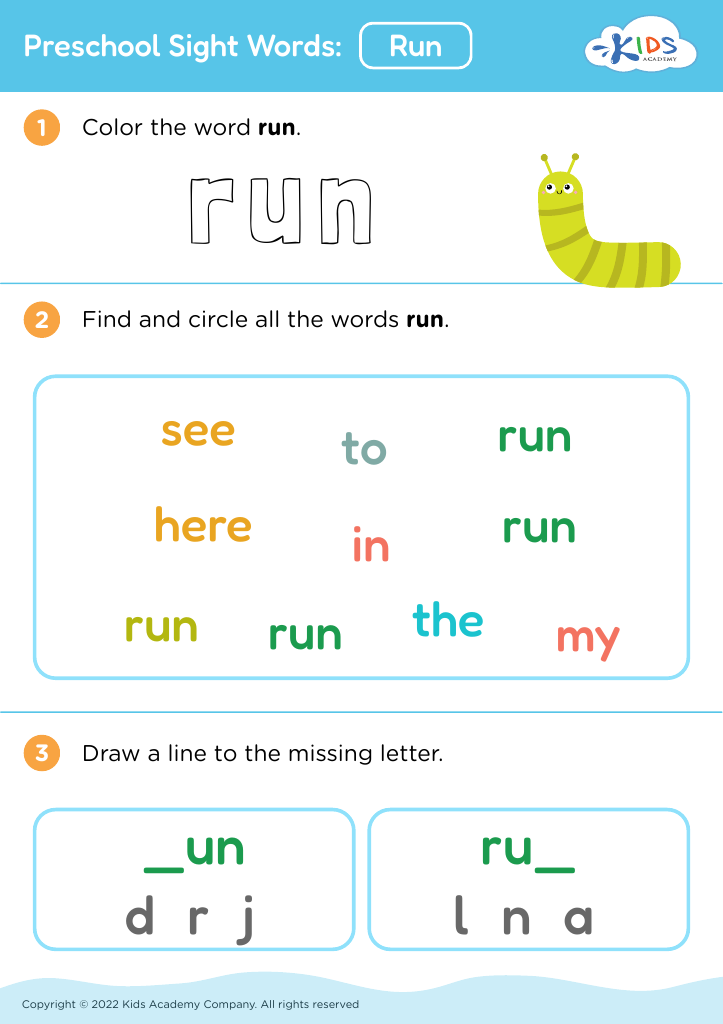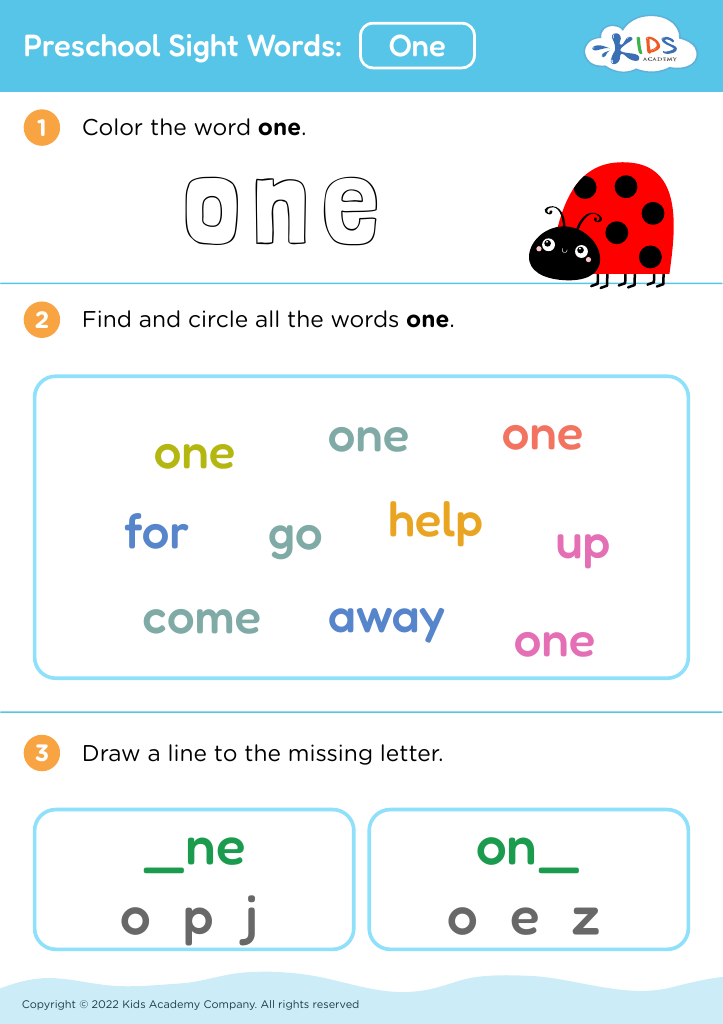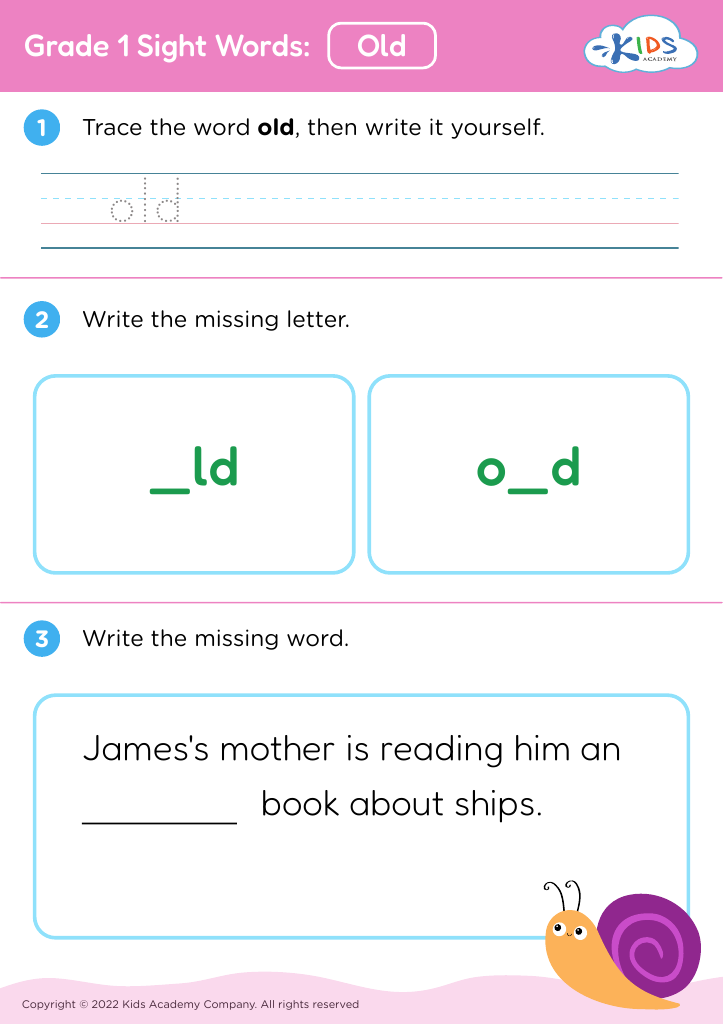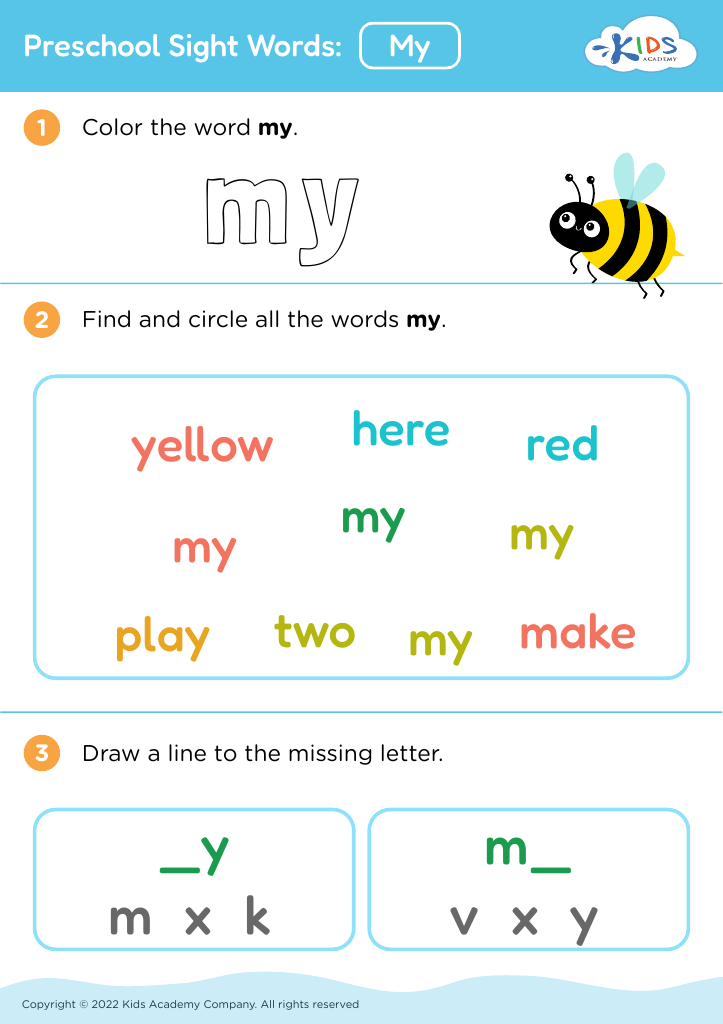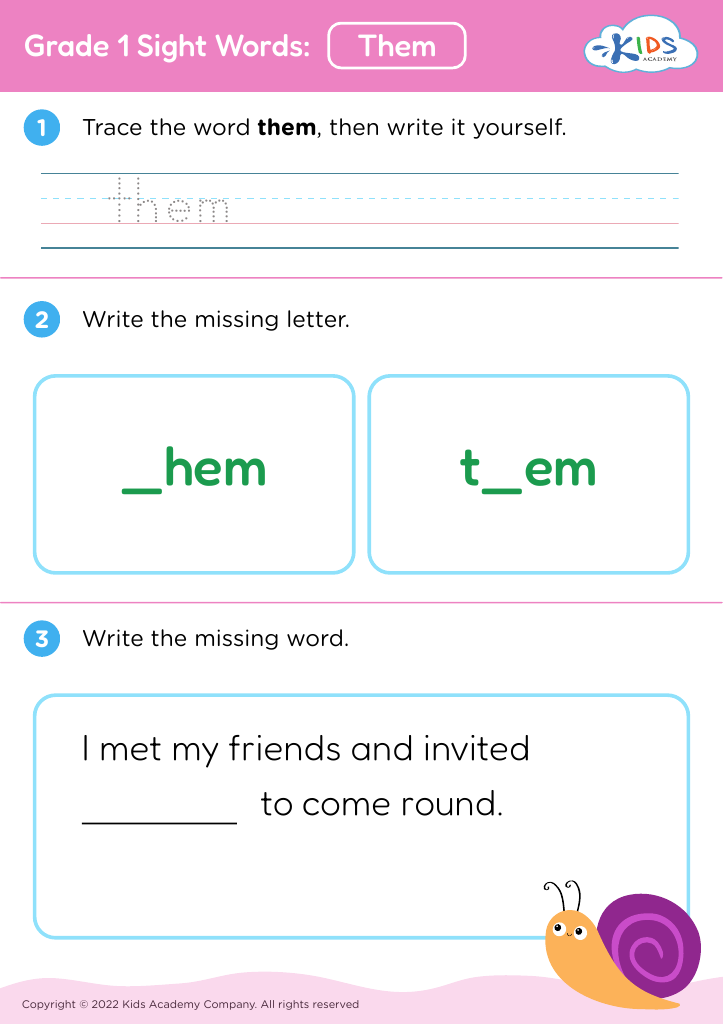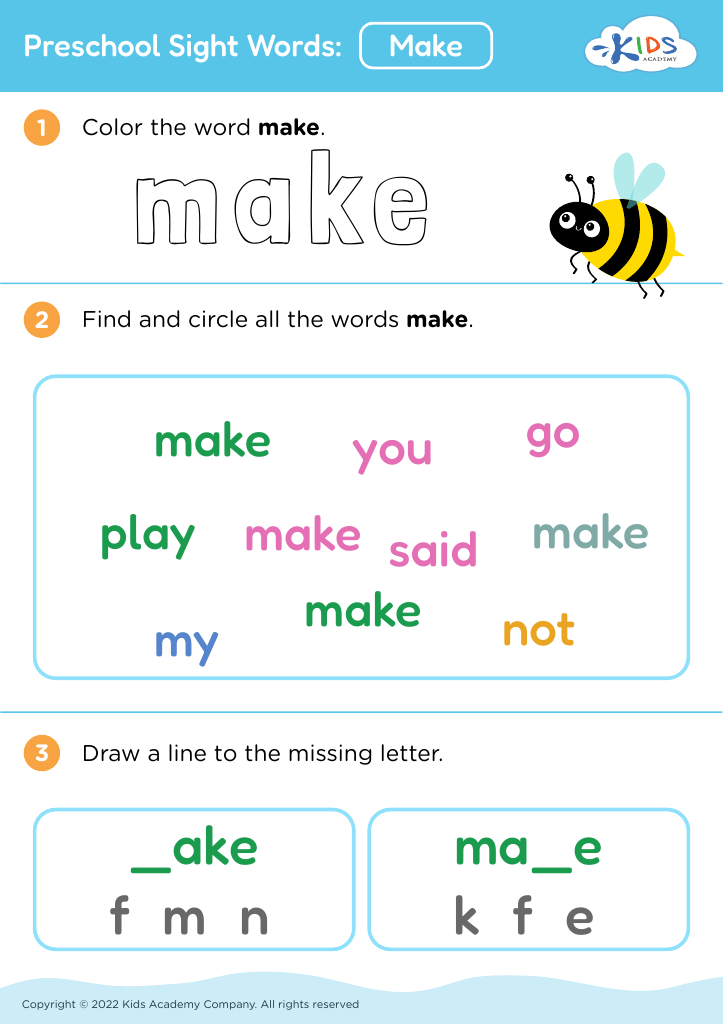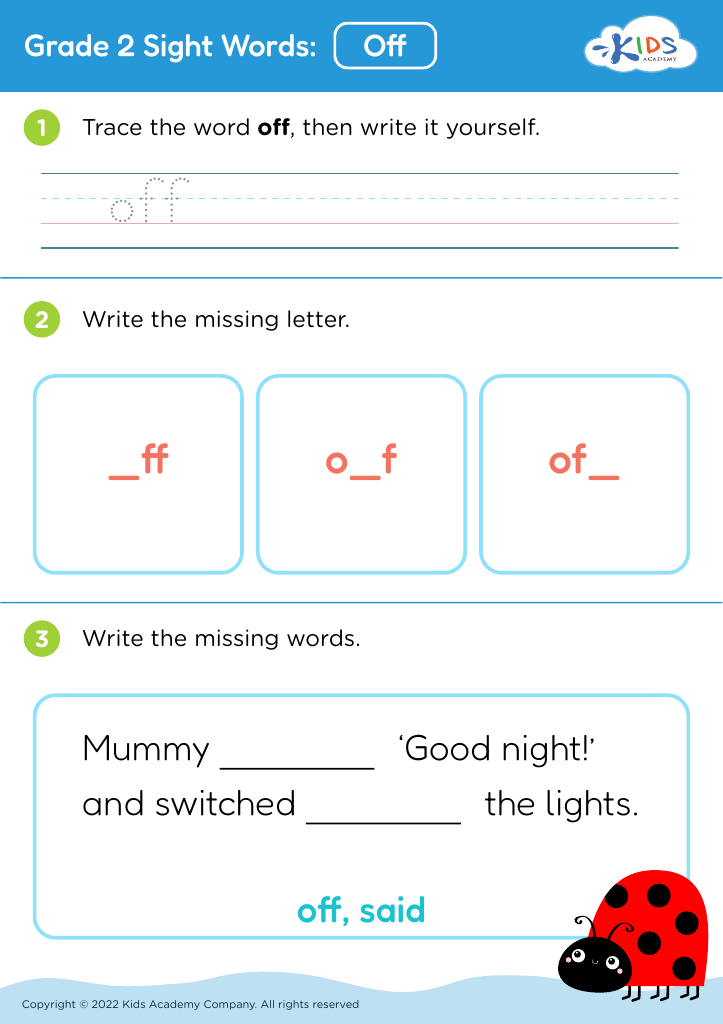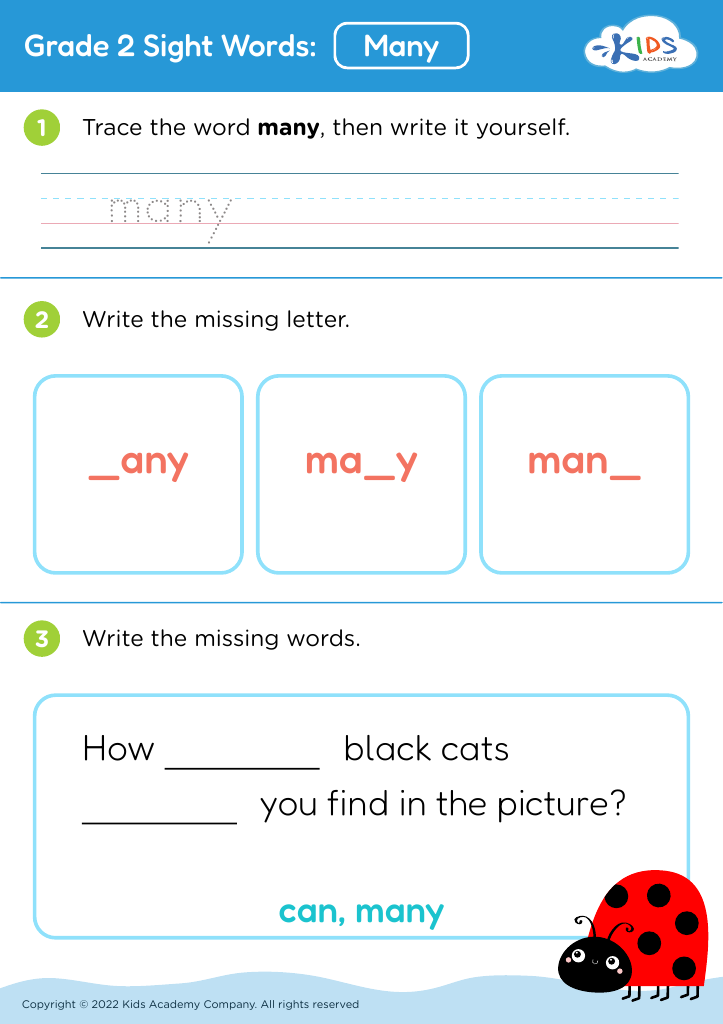Understanding fractions Building Vocabulary Worksheets for Ages 4-8
58 filtered results
-
From - To
Welcome to our "Understanding Fractions Building Vocabulary Worksheets" page, designed for children ages 4-8! These engaging worksheets provide a fun way for young learners to grasp the basics of fractions while expanding their vocabulary. Utilizing colorful illustrations and interactive activities, the worksheets encourage children to identify and create fractions in everyday scenarios, enhancing both their mathematical and language skills. Suitable for home or classroom use, these resources promote a solid foundation in fractions, setting the stage for future math success. Download our free worksheets and watch your child's confidence soar as they discover the world of fractions through vocabulary building!
Understanding fractions and building vocabulary from ages 4-8 is crucial for children's overall cognitive development and future academic success. At this age, children develop foundational mathematical skills, and introducing fractions helps them understand parts of a whole, creating a basis for more complex concepts in mathematics. Recognizing that fractions are not just numbers, but represent relationships, is essential for future topics like measurement, division, and ratios.
Additionally, building vocabulary during these formative years enhances children's reading comprehension and communication skills. Strong vocabulary proficiency aids in expressing mathematical concepts and reasoning clearly. By associating mathematical terms, such as "half," "quarter," and "numerator," with practical examples, children can make real-world connections that foster their understanding.
For parents and teachers, focusing on fractions and vocabulary is not just about teaching numbers or words; it’s about equipping children with the tools they need to navigate the world. Engaging with fractions through everyday activities—like sharing food or dividing toys—makes learning relevant and helps develop critical thinking and problem-solving skills. As children become confident in these areas, they're more likely to excel in future academic endeavors, ultimately reflecting their readiness to tackle new challenges.
